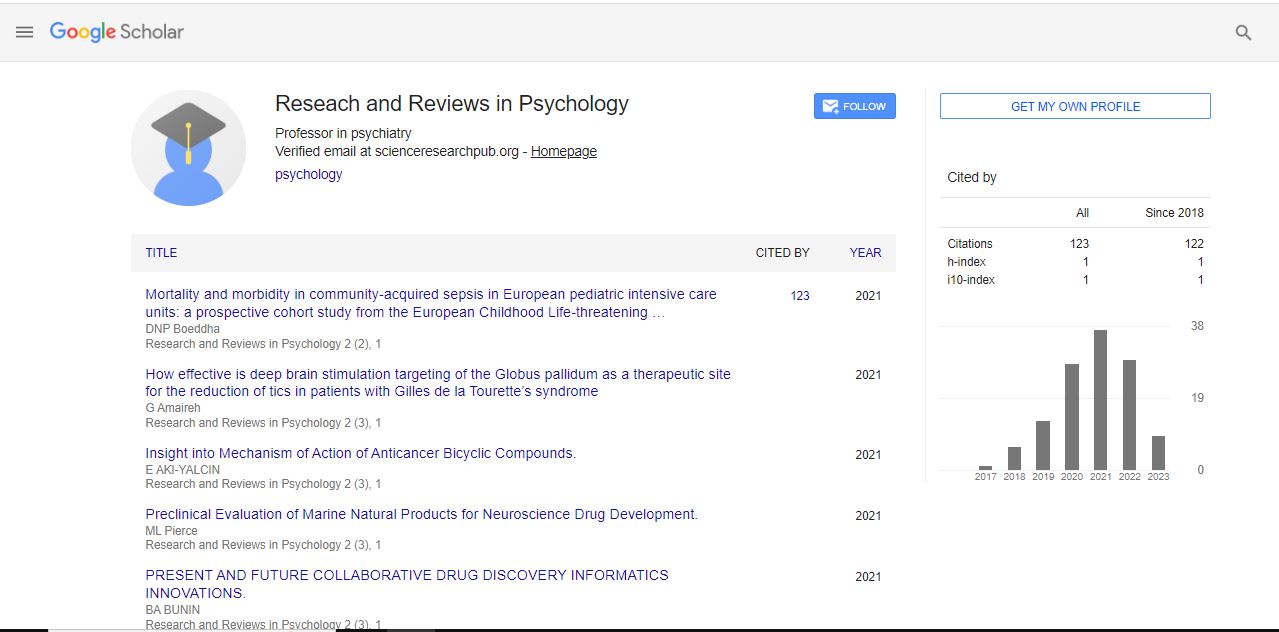Short Communication, Res Rev Phys Vol: 2 Issue: 5
Preliminary evidence for a compromised T cell compartment in maltreated children with depression and post-traumatic stress disorder
Objective: Adverse childhood experiences, such as maltreatment, and affective disorders associate with a pro-inflammatory state and/or variably compromised counts in lymphocyte subsets in adults. Animal models of social stress indicate that recent thymic emigrant (RTE) cells, which maintain the T cell compartment, are affected. Methods: We evaluate the link between lymphocyte subsets, depression, and post-traumatic stress disorder (PTSD) among 16 maltreated children (ages 6-17 years) one to three years after the intervention of a child protection team and among 14 healthy age-matched controls. The participants completed psychological assessment and had blood drawn for fluorescent activated cell sorting analysis. Results: Among maltreated children and adolescents, depression was associated with lower counts of RTEs and helper T cells, after controlling for age. We found additional trends and large effect sizes with regard to the percentages of these cells, as well as for related lymphocyte subsets. Similar effects were found for PTSD, associated with lower counts of naïve T cells, also supported by a trend for their percentage. Compared to controls, maltreated participants with a clinical level of depression had decreased percentages of RTEs, with a similar trend for PTSD. Conclusion: These preliminary findings are the first to demonstrate a compromised T cell compartment related to psychiatric symptoms in maltreated children and adolescents. There is a need for further studies, particularly evaluating the role of RTEs.
Abstract
Objective: Adverse childhood experiences, such as maltreatment, and affective disorders associate with a pro-inflammatory state and/or variably compromised counts in lymphocyte subsets in adults. Animal models of social stress indicate that recent thymic emigrant (RTE) cells, which maintain the T cell compartment, are affected.
Methods: We evaluate the link between lymphocyte subsets, depression, and post-traumatic stress disorder (PTSD) among 16 maltreated children (ages 6-17 years) one to three years after the intervention of a child protection team and among 14 healthy age-matched controls. The participants completed psychological assessment and had blood drawn for fluorescent activated cell sorting analysis.
Results: Among maltreated children and adolescents, depression was associated with lower counts of RTEs and helper T cells, after controlling for age. We found additional trends and large effect sizes with regard to the percentages of these cells, as well as for related lymphocyte subsets. Similar effects were found for PTSD, associated with lower counts of na�ve T cells, also supported by a trend for their percentage. Compared to controls, maltreated participants with a clinical level of depression had decreased percentages of RTEs, with a similar trend for PTSD.
Conclusion: These preliminary findings are the first to demonstrate a compromised T cell compartment related to psychiatric symptoms in maltreated children and adolescents. There is a need for further studies, particularly evaluating the role of RTEs.
 Spanish
Spanish  Chinese
Chinese  Russian
Russian  German
German  French
French  Japanese
Japanese  Portuguese
Portuguese  Hindi
Hindi 